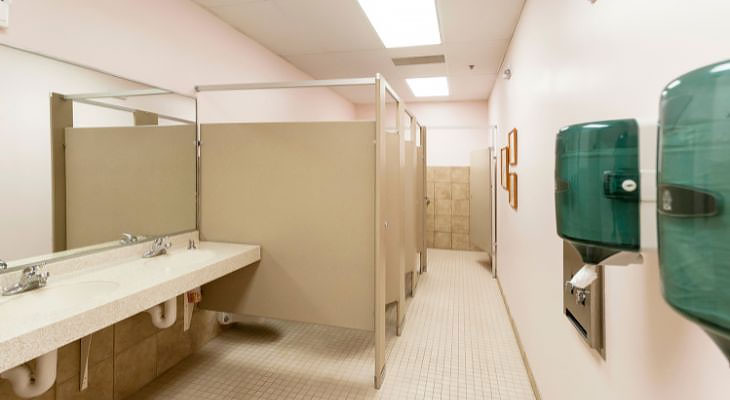
5 Sneaky Sources of Commercial Bathroom Odors
Clogged Floor Drains
Clogged floor drains are notorious for causing unpleasant odors in commercial bathrooms. Over time, these drains can become blocked by an accumulation of debris, such as dirt, scum, and other waste materials. This blockage impedes the flow of water and creates a stagnant environment where bacteria can flourish, emitting foul odors. Tackling this issue effectively requires a combination of regular maintenance and proactive measures. In more stubborn cases, you can pour a mixture of vinegar and baking soda down the drain to create a fizzing action that helps break up the blockage. If these efforts don't yield results, then calling a professional plumber to handle the task may be necessary.
Wax Ring Complications
The wax ring, located beneath the toilet, serves as a seal that prevents water and sewer gases from escaping into the bathroom. Unfortunately, these rings can deteriorate or become dislodged over time, causing leaks and allowing unpleasant odors to permeate the room. In addition to releasing foul odors, a failing wax ring can lead to water leaks, further exacerbating the problem. The leaking water can stagnate, providing an ideal breeding ground for bacteria and mold, contributing to their own odors. Addressing wax ring complications involves replacing the faulty ring, a task that may require the skills of a professional plumber, especially if you need to remove and reinstall the toilet.
Soiled Floor Grout
Grout is porous, absorbing moisture, dirt, and bacteria over time. When this happens, the grout can become discolored and emit a musty, unpleasant odor. This is particularly true in high-traffic commercial bathrooms where the floors are subject to frequent use and spills. A deep cleaning process involving a grout cleaner, a bacteria digester, and a stiff-bristle brush is often necessary for effective results. In more severe cases, professional cleaning or even grout replacement might be a requirement to eliminate the odor source fully.
Urine in Urinal Traps
Urine accumulating in urinal traps often contributes to foul odors in commercial restrooms. These traps, integral to both traditional and waterless urinals, serve the purpose of blocking sewer gases from infiltrating the bathroom. Yet, they can collect uric acid deposits from urine over time, creating an enduring, unpleasant smell. Regular maintenance, including using specialized cleaning products that break down the uric scale and replacing the cartridges in waterless urinals as per manufacturer guidelines, significantly enhances the overall scent of commercial bathrooms.
Burst Sewage Pipes
When a sewer line breaks, it discharges sewage into the surrounding area, leading to a foul stench, significant damage, and potential health hazards. Aging infrastructure, high water pressure, or shifting soil often cause such ruptures. Prompt attention to this issue is imperative to mitigate its impact. This generally includes identifying the leak source, managing the spill, and repairing or replacing the faulty pipe. Often, professional plumbers employ a method known as pipe bursting, which involves pulling a new pipe through the existing one, effectively replacing it without the need for extensive excavation.


